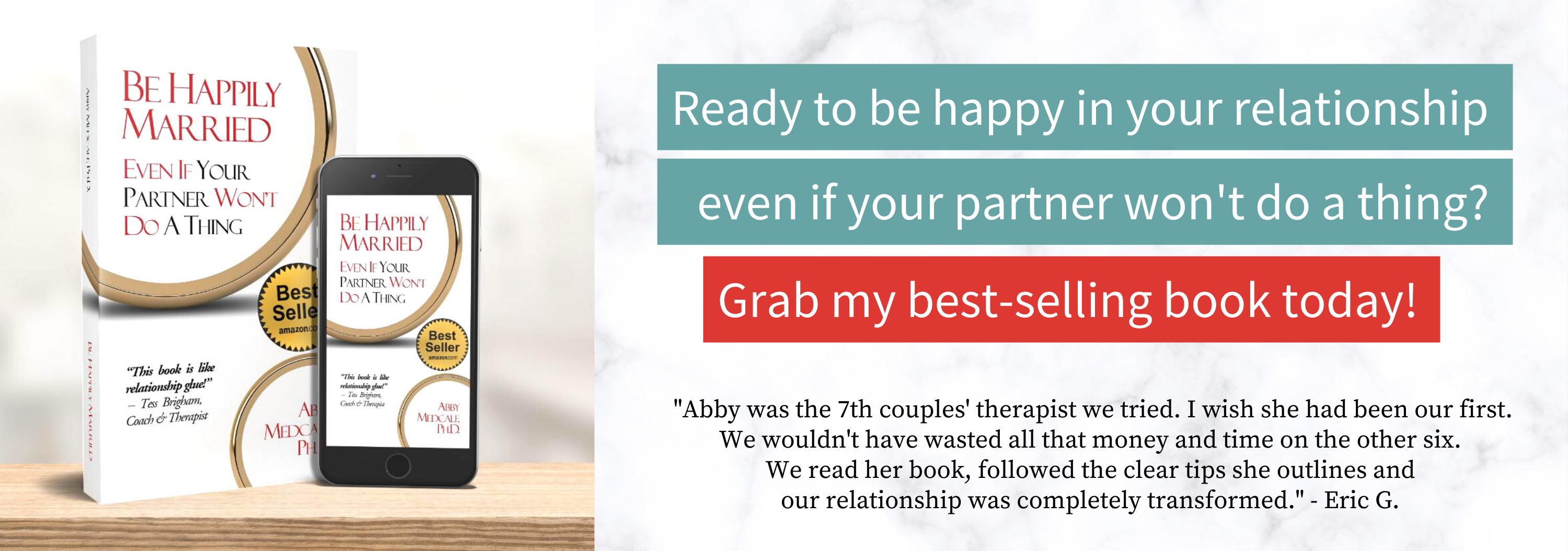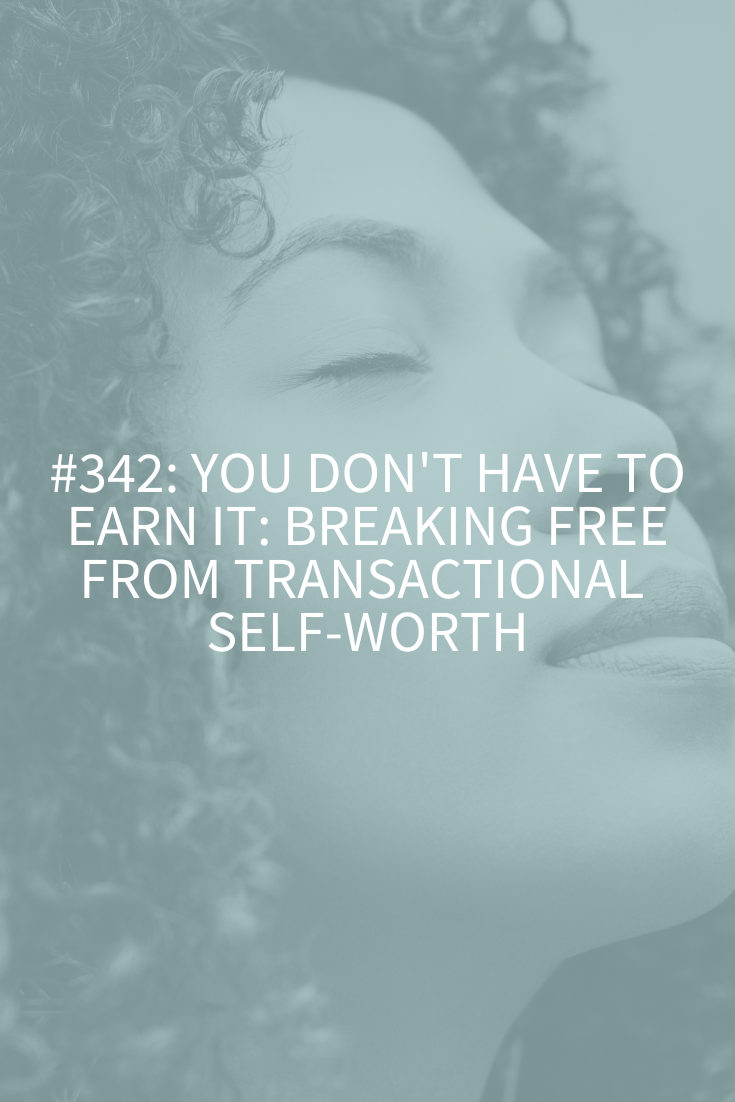
Are you wondering if you’re staying in a relationship for the right reasons? Maybe you’ve been waffling back and forth wondering if this relationship is healthy. How do you know if you’re staying because it’s truly right for you or if you’re in your relationship for the wrong reasons and it’s time to move on? Today I’m going to talk about the the big mistake most people make when they’re trying to decide whether to stay or go and my three-step process for figuring out the right answers for your relationship.
9-minute read
What Are the Right Reasons to Stay in a Relationship?
Let me start by saying, there is no one right answer. I know it’s comforting to think there is and that you can break everything down to the sum of its parts and decide, but that’s not how this works.
No matter what else, if you stay in a relationship, it has to be healthy for you. And let me tell you this, even if you’re staying for the wrong reasons, you can still work on making it as healthy as possible.
Although I might use the terms “right” and “wrong” what I’m really meaning is healthy or unhealthy. And what I mean by a healthy relationship is this: you feel safe, secure, cherished and respected. You feel like a whole person in this relationship. You don’t rely on your partner to make you happy. Your self-esteem is intact and you don’t live with fear-based feelings on a daily basis. You understand that the power to feel good in the world rests solely in your own hands.
When I talk about unhealthy relationships, I’m talking about relationships where there’s codependency, abuse of any kind, or where you look to the other person for all your emotional needs. When you’re in an unhealthy relationship you live most of your time in some fear-based feeling like resentment, anger, hopelessness, helplessness, worry, anxiety or even depression.
And let me tell you this: you’ve got to go easy on yourself in this process. You know how I always say that people are doing the best they can with the tools they have? Well, you’ve been doing the best with the tools you have. This isn’t a time to beat up on yourself (“Why have I stayed so long?!”). This is a time to acknowledge that you’re here with me right now because you want to get better. You want to be happier, and I can certainly help with that but you can’t start on any path of self-love, acceptance and having a healthy relationship from self-loathing and regret. It’s not going to work.
The Big Mistake
Let’s first talk about what not to do as you’re working on yourself and your relationship. The big mistake I see people make when they’re trying to decide whether their relationship is healthy or not – whether they should stay or go – is creating a pros-and-cons list. The problem with this is that you can have twenty things in the pro-column and only two things in the con-column, but those cons matter more – they carry more weight; they’re deal breakers.
Learn how to identify your standards and dealbreakers right here!
The other issue with making a pros-and-cons list is that you’re trying to break down a love equation using your analytical brain and that’s not going to work. Although the two sides of our brain work together, each hemisphere is better equipped in different areas. Your so-called “left brain” is better with being linear, methodical and sorting out the facts. So, when you make a pros-and-cons list, that’s the side of your brain you’re using.
But remember, these “facts” you’re so sure of are skewed. I’ve talked about this a ton but will briefly review with you right now that two things are working against your understanding of “the facts” in any kind of objective way. First is your confirmation bias which refers to how your subconscious will search for and favor information that supports something you already believe and will ignore information that doesn’t support what you already believe. So, if you believe your partner doesn’t appreciate you, you’ll see a lot of “evidence” supporting that. You’ll prove yourself right.
When you’re making a pros and cons list and using your left brain to discern the facts, you’re literally writing down ways your brain has lied to you.
Then you’ve also got your reticular activating system (or RAS) working against you. The RAS is a network of neurons located in the brain stem and acts as a filter between your conscious and subconscious. Specifically, it takes instructions from your conscious mind and passes them on to your subconscious. You’re constantly giving your RAS instructions by what you’re thinking about, the problem is that you don’t even realize it.
So, if you’re thinking, “My partner is always judging and criticizing me,” the RAS hears this as the instruction or order: “Look for my partner criticizing me” and you’ll then see it all the time. But the even scarier part of this is that the RAS will also filter out anything that doesn’t match what you’re thinking! So, when your partner is loving and kind you won’t see it!
What you really want to do is think about your relationship using more of your right brain skills. These include your intuition, curiosity, playfulness, flexibility and your feelings about the relationship.
When thinking about your relationship and what’s happening, you want to do that from a place where you feel calm and loving, not from a place where you’re full of all those fear-based emotions.
The Three-Step Process to Figuring Out If You’re in a Relationship for the Wrong Reasons
1. Get Into a Better Feeling Place First
No matter what else you do, it’s important to get yourself into a good-feeling place before you make decisions. This, by the way, is true for any decision you make. When you’re in that fear brain, you’re not thinking effectively or coming up with creative solutions. There is one tool that is hands down the best when shifting yourself from a yucky feeling place to a better one and that’s the next best feeling thought exercise. I go deep into it on another episode on the easiest and most effective way to solve any problem.
2. Identify Your Top Three Things
Once you’re in a better-feeling place, I want you to write down the top three things you need in a relationship. What are the top things you need to feel secure, safe and loved? Give yourself a minute to really meditate on this question, dig deep and think about when you’ve felt best in a relationship. What was there?
Then, you’re going to rate each item on a scale of one to six with one being “I never get/feel that with my partner” and six being “I get/feel that most of the time with my partner.” The benefit of using a one-to-six scale like this is that it makes you come down on one “side” or the other.
When you step back and look at how you scored, what do you feel?
Scores between 12 and 18 are telling you that you’re mostly getting what you need. From there, you want to ask yourself, “If I’m getting mostly what I truly need, why am I having doubts about this relationship?” Maybe you’ve gotten lost and you’re focusing on the wrong things, the things that aren’t truly important. What steps can you take to get your focus to a better place?
If you scored between 3 and 9 it’s clear that your top three standards aren’t being met a majority of the time. What does that tell you? Mostly, I want you to be looking at yourself. How have you let your boundaries slide and what can you do about it? What positive action steps could you take to make each standard a 6? What have you tried before? What’s worked and what hasn’t?
In the end, when you’re scoring between 3 and 9 you really need to question your motivations and that brings us to step three.
3. Is Your Motivation from Love or Fear?
Now it’s important to identify whether your motivations are grounded in love or fear. I’ve said it before and I’ll say it again, you can’t base a love relationship on fear. Fear never, ever, ever made a relationship better. It just doesn’t work that way.
I’ve created a handout to help you understand and identify your motivations. I’ll highly recommend that you download it but you can also write down all the reasons you stay and then go back through and identify whether it’s a fear-based reason or a reason based in love.
For example, do you stay because you worry your partner will find someone new and be happy and you’ll be alone and miserable? That’s fear-based. Do you stay because, no matter what, you feel like you and your partner are a team and have each others’ backs? That’s love-based.
If you make your lists and do the worksheets and realize you’re in your relationship based on fear but you don’t want to leave, I don’t want you to panic. It’s OK – you’re OK! What you’ve got now is information.
For example, maybe you’re staying because of your children or financial security (fear-based reasons). You can turn these into love-based situations by working on yourself. If you decide you simply can’t leave because you can’t split up your family and you fear what it would do to your kids (and even your lifestyle), your job is to figure out a way to be happy in your family regardless.
The great Viktor Frankl (the author of Man’s Search for Meaning) said, “When we are no longer able to change a situation, we are challenged to change ourselves.”
Viktor Frankl was an Austrian psychiatrist and Holocaust survivor who spent his time in the camps helping his fellow prisoners find meaning and a reason to stay alive. His pregnant wife and parents were all killed in the camps. He later founded logotherapy, a school of psychotherapy that theorizes that a search for our life’s meaning is the central human motivational force.
If you’re in a situation that you feel can’t be changed (such as leaving your relationship), how can you change yourself in a healthy, loving way so you can find happiness and peace? Staying with fear as your motivation won’t work. How can you find another motivation? Maybe it’s the challenge of finding yourself. Maybe it’s to dig deep into your spiritual life. Maybe it’s to become a happier person without relying on anyone else to “make” you that way.
Whatever it is, it’s imperative that you do this work – that you find a way to be satisfied and joyful despite your circumstances. In the end, whether you stay or go, I want it to be from love so doing the work is crucial no matter what your final outcome. I say this because you deserve to live a life full of growth, joy and meaning. Make that your priority and your answers will become clear.
Resources for Healthy Relationships
Is Your Relationship Worth Saving?
You’ve Got to Have High Standards and Low Expectations
Feeling Resentful or Stuck in Your Relationship? It Might Be Your Reticular Activating System!
The Complete Guide to Effective Communication in Any Relationship
The Easiest and Most Effective Way to Solve Any Problem
Research
Emily Esfahani Smith, “There’s more to life than Being Happy: Meaning vs Happiness,” The Atlantic







